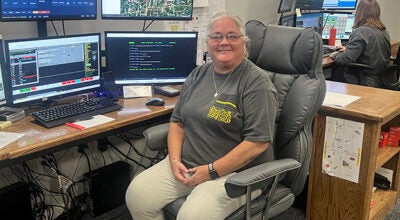Report: Body-worn camera policies fail to protect the public
Published 8:40 pm Monday, January 8, 2018
The American Civil Liberties Union of Mississippi is recommending that a statewide policy on body-worn cameras for law enforcement be created in order to balance police accountability, government transparency and privacy.
A report released Monday by the ACLU states: “For body cameras to promote trust between police and the community, police must use them in a way that carefully balances interests in police accountability, government transparency and privacy. In the policies we analyzed, we found inconsistent implementation guidance, a lack of privacy safeguards, and bare minimum accountability provisions.”
Brookhaven Police Chief Kenneth Collins has supported the continued use of body-worn cameras.
“They are a necessity to keep the integrity of the public and the officers,” he said.
Of the 65 law enforcement policies reviewed in the state, zero require individuals to be notified that they are being recorded; less than 20 percent require officers to deactivate the camera when entering a home if the resident requests the camera be turned off; no policies provide provisions to protect victims of domestic violence; and most do not lift the activation of cameras in school settings, according to the ACLU.
Brookhaven police began using body-worn cameras in 2016 and the department has policies regarding the use of cameras in places where people have an expectation of privacy. The city’s policies also spell out that “whenever possible, officers should inform individuals that they are being recorded,” but nothing appears to require that the notification be made.
According to the Brookhaven police policy, officers must use the cameras any time they interact with the public in their official duties, but they should also announce, when possible, that the recording is taking place. Citizens can decline to be recorded in places where they have a reasonable expectation of privacy — except in the case of an arrest of search — and the policy lists restrooms, locker rooms and residences as examples.
Bobby Bell, police chief at the time, said he considered the cameras to be insurance for the department.
“I have said on many occasions, our department has been fortunate that we have not had a situation where an officer has been involved in a shooting or anything of that nature,” Bell said in 2016. “But we do know that we are not exempt from it happening. We are looking at the cameras just like we do insurance. It’s better to have it and not need it than to need it and not have it.”
Officers receive training on the use of the cameras, and the recordings must be uploaded by the end of each officer’s shift. Footage from the cameras is deleted after 90 days, and a long-term backup is only made if the data becomes evidence for an ongoing investigation.
The ACLU is hopeful that the state Legislature will create a law that provides standardized guidance for law enforcement agencies in the state.
“Used properly, body-worn video cameras can help deter police misconduct and uses of force, provide evidence to hold officers accountable when misconduct does occur as well as exonerate wrongly accused officers, and help the public understand how police operate. The lack of uniformity across the state makes it clear that the state must establish certain minimum criteria for policies governing the use of BWCs by agencies choosing to deploy them,” said Jennifer Riley Collins, ACLU of Mississippi executive director.





